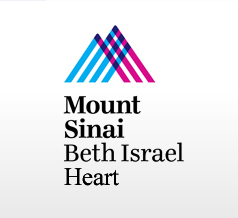The Effect of Thalidomide in Suppression of the Systemic Inflammatory Response Syndrome in Hemodialysis Patients
| Status: | Terminated |
|---|---|
| Conditions: | Infectious Disease |
| Therapuetic Areas: | Immunology / Infectious Diseases |
| Healthy: | No |
| Age Range: | 18 - Any |
| Updated: | 4/17/2018 |
| Start Date: | September 2007 |
| End Date: | December 2009 |
Phase 3 Study: The Effect of Thalidomide in Suppression of the Systemic Inflammatory Response Syndrome in Hemodialysis Patients
Both malnutrition and inflammation are associated with death in dialysis patients and also
with cardiovascular disease. The researchers are testing the idea that inflammation causes
malnutrition by using a drug to suppress inflammation in hemodialysis patients to find out
whether that will increase blood tests that are associated with malnutrition. The researchers
will give hemodialysis patients who have both inflammation and malnutrition either
thalidomide or a placebo and compare the effects of treatment on the levels of two proteins
in the blood, albumin and prealbumin, that are normally reduced in malnourished patients.
Patients who have a serum albumin concentration < 3.8 g/dl will be asked to sign consent to
have blood drawn prior to dialysis for measurement of CRP (C-reactive protein). Those with
CRP values ≥ 0.8 mg/dl will have a second measurement of CRP performed within 2 weeks. Those
with two consecutive values of CRP ≥ 0.8 mg/dl will be eligible for enrollment
with cardiovascular disease. The researchers are testing the idea that inflammation causes
malnutrition by using a drug to suppress inflammation in hemodialysis patients to find out
whether that will increase blood tests that are associated with malnutrition. The researchers
will give hemodialysis patients who have both inflammation and malnutrition either
thalidomide or a placebo and compare the effects of treatment on the levels of two proteins
in the blood, albumin and prealbumin, that are normally reduced in malnourished patients.
Patients who have a serum albumin concentration < 3.8 g/dl will be asked to sign consent to
have blood drawn prior to dialysis for measurement of CRP (C-reactive protein). Those with
CRP values ≥ 0.8 mg/dl will have a second measurement of CRP performed within 2 weeks. Those
with two consecutive values of CRP ≥ 0.8 mg/dl will be eligible for enrollment
4.1 Pre-assignment measurements will include:
1. Patient is eligible for enrollment.
2. Complete physical examination.
3. Blood draw at initiation of hemodialysis session
4. Instruction on birth control methods required.
5. Subjects who are non-compliant with regard to medication compliance range or birth
control requirements as outlined in the S.T.E.P.S.® program will be immediately
discontinued from the study
4.2 Detailed description of treatment: Patients who completed the first 4 weeks will be
randomized into Treatment group. A total of 24 subjects will be studied; 12 will receive no
drug and 12 will receive thalidomide. Subjects randomized to "Active" Treatment arm will
receive Placebo (no-drug/sugar pill) ,or thalidomide 100 mg (two 50 mg active capsules) to
take at bedtime. Weekly, Subjects will have blood drawn; will undergo a capsule count to
establish a compliance range of > 85%; will have physical exam with special attention to skin
and evaluation of peripheral nervous system for a change in or appearance of sensory
neuropathy.
If somnolence is tolerable (subjects do not have residual somnolence in the morning) the dose
will be increased to 200 mg (4 capsules).
Patients who completed 24 weeks of study will have final evaluation at week 28.
1. Patient is eligible for enrollment.
2. Complete physical examination.
3. Blood draw at initiation of hemodialysis session
4. Instruction on birth control methods required.
5. Subjects who are non-compliant with regard to medication compliance range or birth
control requirements as outlined in the S.T.E.P.S.® program will be immediately
discontinued from the study
4.2 Detailed description of treatment: Patients who completed the first 4 weeks will be
randomized into Treatment group. A total of 24 subjects will be studied; 12 will receive no
drug and 12 will receive thalidomide. Subjects randomized to "Active" Treatment arm will
receive Placebo (no-drug/sugar pill) ,or thalidomide 100 mg (two 50 mg active capsules) to
take at bedtime. Weekly, Subjects will have blood drawn; will undergo a capsule count to
establish a compliance range of > 85%; will have physical exam with special attention to skin
and evaluation of peripheral nervous system for a change in or appearance of sensory
neuropathy.
If somnolence is tolerable (subjects do not have residual somnolence in the morning) the dose
will be increased to 200 mg (4 capsules).
Patients who completed 24 weeks of study will have final evaluation at week 28.
Inclusion Criteria:
1. End stage renal disease (ESRD) patients on hemodialysis for at least 3 months.
2. Serum C reactive protein level of ≥ 0.8 mg/dl.
3. Serum albumin < 3.8 g/dl (BCG).
4. Signing a written informed consent form.
5. Willingness and ability to comply with the FDA-mandated S.T.E.P.S ® program.
6. Age > 18 years.
Exclusion Criteria:
1. Pregnant and/ or lactating female.
2. Active infection within the previous 8 weeks requiring administration of antibiotics.
3. Patients receiving systemic immunosuppressive therapy.
4. Patients with HIV.
We found this trial at
1
site
Beth Israel Med Ctr The physicians and staff of Mount Sinai Beth Israel's Heart Institute...
Click here to add this to my saved trials
